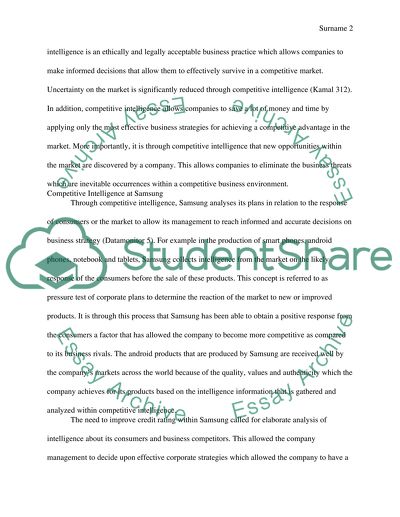Cite this document
(“The role of competitive intelligence in an organization (Samsung) Essay”, n.d.)
Retrieved de https://studentshare.org/information-technology/1402443-the-role-of-competitive-intelligence-in-an
Retrieved de https://studentshare.org/information-technology/1402443-the-role-of-competitive-intelligence-in-an
(The Role of Competitive Intelligence in an Organization (Samsung) Essay)
https://studentshare.org/information-technology/1402443-the-role-of-competitive-intelligence-in-an.
https://studentshare.org/information-technology/1402443-the-role-of-competitive-intelligence-in-an.
“The Role of Competitive Intelligence in an Organization (Samsung) Essay”, n.d. https://studentshare.org/information-technology/1402443-the-role-of-competitive-intelligence-in-an.


